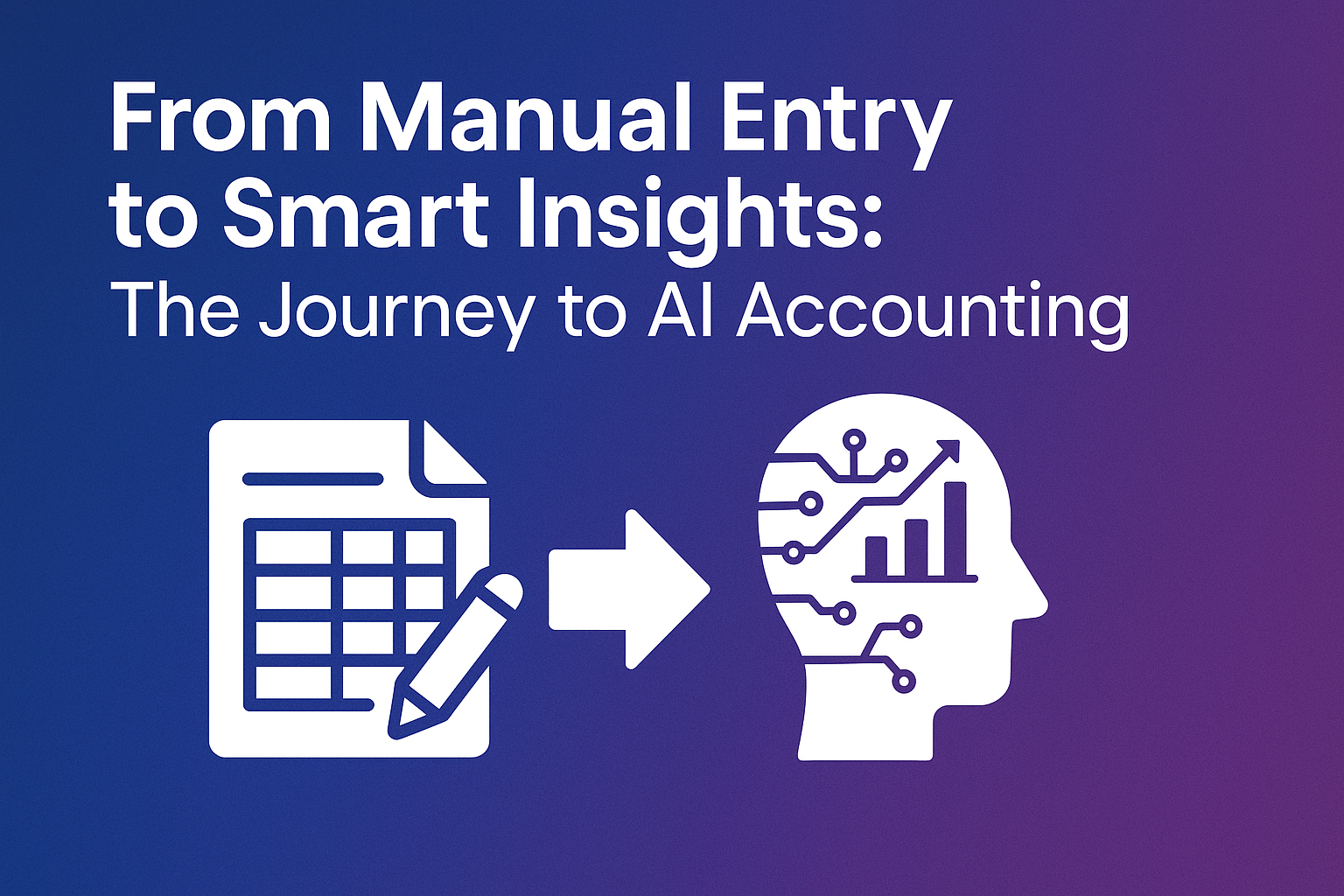
For decades, accounting was synonymous with manual data entry, endless spreadsheets, and long nights reconciling transactions. While accuracy and diligence have always been the foundation of good accounting, human limitations often slowed down financial workflows. Today, that reality is changing fast — thanks to artificial intelligence (AI).
AI accounting doesn’t just automate processes; it transforms how businesses understand, manage, and act on financial data. Let’s explore how the accounting world has evolved from manual input to intelligent, data-driven insights — and how platforms like ccMonet are leading this transformation.
In the traditional accounting world, every transaction required human hands — from entering invoices to reconciling ledgers. Accountants spent hours verifying data, with little time left for higher-level financial analysis or strategic planning.
While these processes ensured precision, they also carried risks: human error, data silos, and inefficiency. Audit trails were often fragmented, and real-time insights were virtually impossible. Finance was reactive rather than proactive.
The first major shift came with digital accounting systems like QuickBooks and Xero, which automated repetitive tasks such as invoice management, expense tracking, and reporting.
This automation boosted efficiency but had limitations — it handled what happened, not why it happened. Accountants still had to interpret data, identify trends, and make predictions manually.
Automation was a step forward, but it didn’t fundamentally change the way finance teams worked. That’s where AI enters the scene.
Artificial intelligence goes beyond task automation — it adds insight, prediction, and context. Through technologies like machine learning, natural language processing, and predictive analytics, AI accounting systems can analyze vast volumes of financial data in seconds, uncover patterns, and even forecast future outcomes.
For example, AI can:
With ccMonet, these capabilities are built directly into your financial operations. The platform transforms raw numbers into intelligent insights, helping finance leaders make decisions with clarity and confidence — not guesswork.
The greatest misconception about AI in accounting is that it replaces accountants. In reality, it amplifies their impact. AI handles the heavy lifting — data collection, categorization, and reconciliation — while humans focus on strategic thinking, creative problem-solving, and client advisory.
With ccMonet’s AI-powered dashboards and smart alerts, accountants can see not just what is happening, but what will happen next — enabling them to act before problems arise. It’s a partnership that blends human judgment with machine precision.
In the AI accounting era, data isn’t just stored — it’s interpreted, connected, and turned into actionable intelligence. Companies leveraging platforms like ccMonet gain a competitive advantage by making faster, smarter financial decisions based on predictive insights rather than historical reports.
The result? Finance becomes a strategic driver of growth, innovation, and resilience — not just a back-office function.
The journey from manual entry to AI-powered insights marks one of the most significant transformations in the history of finance. As businesses embrace intelligent automation, the role of the accountant evolves from number-cruncher to financial strategist — supported by the precision and foresight of AI.
💡 Ready to evolve from manual workflows to smart financial intelligence?
Discover how ccMonet can help your business harness AI to streamline operations, strengthen compliance, and uncover strategic insights — all in one platform.